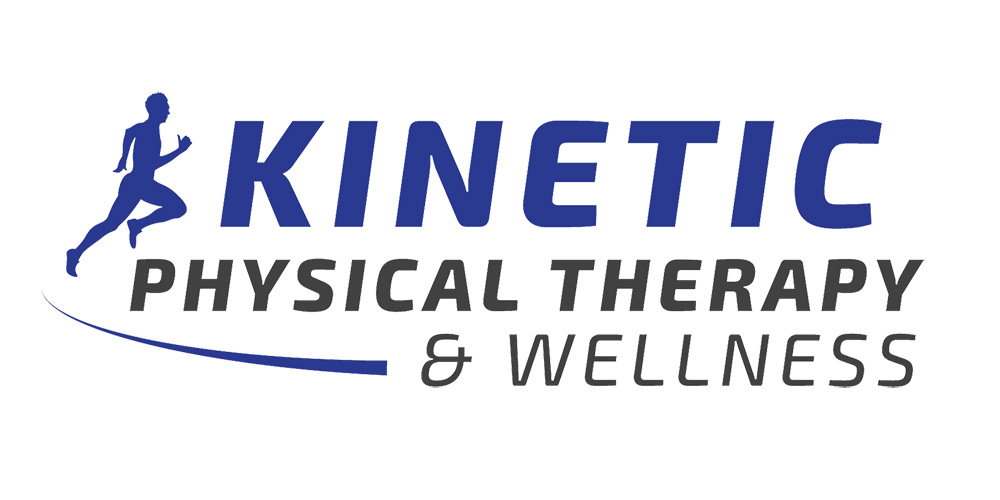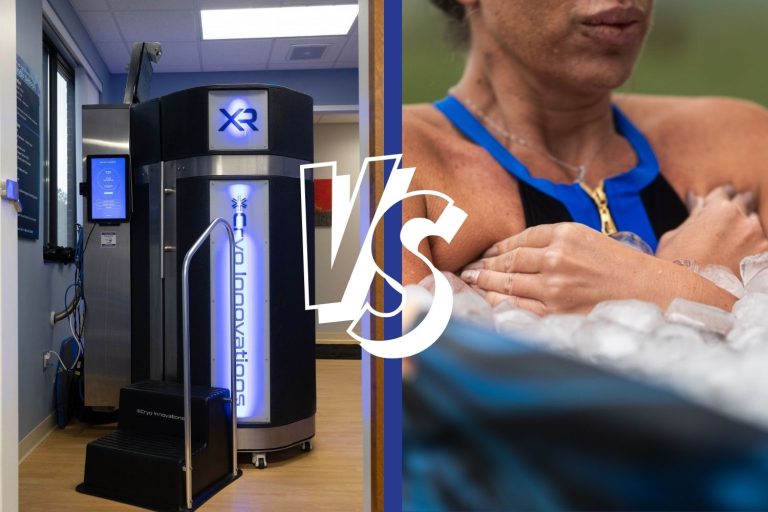

Occupational Therapy for Memory, Focus, and Problem-Solving
Why Cognitive Rehabilitation Matters
Occupational therapy for memory is essential for individuals who struggle with mental tasks such as remembering appointments, concentrating on conversations, or solving everyday challenges. When cognitive changes affect a person’s ability to manage daily life, confidence and independence often decline. Through specialized cognitive rehabilitation programs, occupational therapy at Kinetic Physical Therapy and Wellness in Greenville, NC helps restore essential cognitive functions so individuals can function more successfully at home, at work, and in the community.
Occupational therapy for memory does more than improve thinking skills — it helps people regain control of routines that support their well-being. Whether due to aging, injury, neurological disease, or mental health conditions, cognitive impairments can be extremely frustrating, but they do not need to define a person’s future.
Why Occupational Therapy for Memory Is So Important for Daily Function
Occupational therapy for memory focuses on skills that support real, meaningful participation in life. Many people experience cognitive changes from conditions such as stroke, traumatic brain injury, Parkinson’s disease, multiple sclerosis, dementia, or long-term stress. These challenges often disrupt independence when handling household responsibilities, social interactions, safety awareness, or work performance.
With occupational therapy, patients learn strategies to strengthen memory and problem-solving, while building routines that make life easier and more predictable. Occupational Therapy for Memory ensures goals are tailored to what each individual values most — maintaining independence, staying employed, or confidently managing personal responsibilities.
The Role of Cognitive Rehabilitation
Occupational therapy for memory uses cognitive rehabilitation techniques that support functional improvement. Instead of memorizing random information, patients practice skills that connect directly to real situations, such as remembering medication times, planning grocery shopping, or safely navigating new environments.
Tasks may include:
- Attention and concentration tasks
- Organizational skills for managing schedules
- Problem-solving for everyday challenges
- Memory strategies such as visualization or association
- Technology training such as calendar and reminder apps
Through repetition and guidance, occupational therapy helps the brain form stronger pathways so essential thinking skills become more automatic and dependable.
Occupational Therapy for Memory to Improve Focus and Attention
Occupational therapy for memory addresses the foundation of many thinking functions: focus and attention. When individuals have trouble concentrating, conversations become overwhelming, multitasking becomes impossible, and mistakes happen more frequently. Therapists use graded activities that gradually challenge attention while providing tools to manage distractions in real-life situations.
This includes:
- Selective attention during busy environments
- Sustained attention for longer activities
- Divided attention for multitasking tasks
Improved focus allows patients to remain engaged in work tasks, hobbies, and social experiences with less stress.
Strengthening Problem-Solving and Executive Function
Daily decision-making requires more cognitive skill than many people realize. Organizing activities, sequencing steps, and troubleshooting unexpected problems rely heavily on executive function. Occupational therapy for memory develops these skills through structured practice within meaningful activities.
For example:
- Planning meals involves generating ideas, writing a list, budgeting, shopping, and cooking.
- Managing personal finances involves organization, accuracy, and attention to detail.
- Driving and community mobility require quick reactions and safe decision-making.
With occupational therapy, patients build confidence in solving problems independently, which reduces frustration and improves quality of life.
Occupational Therapy for Memory Supports Aging Adults
Cognitive decline can appear gradually with age, but early intervention makes a major difference. Occupational therapy for memory teaches strategies that support aging adults in managing activities such as:
- Remembering names and appointments
- Keeping track of medications
- Maintaining safe home environments
- Preventing confusion during complex tasks
These abilities help seniors stay independent longer and reduce the need for higher-level care services. Emotional well-being also improves when individuals feel capable and secure in their own routines.
A Personalized Approach Makes the Biggest Impact
Occupational therapy for memory is highly personalized because cognitive challenges affect everyone differently. Kinetic therapists complete thorough assessments to understand strengths, challenges, and specific goals before designing a plan that fits daily life.
Plans may include:
- Goal-driven tasks based on each patient’s real world roles
- Home routines that support continued success
- Caregiver involvement for additional support
- Modifications to reduce mental strain
- Technology training to assist memory and organization
This functional and compassionate approach ensures that progress is meaningful and measurable.
Occupational Therapy for Memory with Supportive Tools and Adaptations
Occupational Therapy for Memory doesn’t depend solely on mental exercises. Sometimes, a small environmental change dramatically improves success. Therapists may recommend:
- Color-coded reminders
- Checklists and visual charts
- Simplified storage systems
- Phone-based task reminders
- Labeling frequently used objects
These practical solutions reduce cognitive load and help patients accomplish more with less stress.
Why Choose Kinetic Physical Therapy and Wellness?
Kinetic Physical Therapy and Wellness delivers a unique and caring approach to cognitive rehabilitation. Their focus on individualized patient care ensures that every program for Occupational therapy for memory reflects their core values: Expert Care, Personalized Treatment, and Lasting Results.
Patients choose Kinetic because they receive:
- One-on-one attention from experienced clinicians
- Evidence-based strategies customized to functional goals
- A supportive environment that encourages progress
- Education for both patients and families
- Improved ability to manage daily responsibilities confidently
Occupational therapy for memory is not a generic or one-size-fits-all program — it is tailored to the person and what matters most to them.
Start Occupational Therapy for Memory and Take Control of Everyday Life
If you or a loved one is noticing difficulty remembering tasks, concentrating during conversations, or solving everyday problems, now is the time to explore a solution that truly works. Occupational therapy for memory at Kinetic Physical Therapy and Wellness in Greenville, NC provides structured support to help restore essential cognitive skills and maintain independence as long as possible.
Every day should feel manageable — not overwhelming. With the right guidance through occupational therapy, you can move forward with confidence, clarity, and renewed control of your life.
Please Share
categories
Recent Posts

Occupational Therapy for Memory, Focus, and Problem-Solving
Why Cognitive Rehabilitation Matters
Occupational therapy for memory is essential for individuals who struggle with mental tasks such as remembering appointments, concentrating on conversations, or solving everyday challenges. When cognitive changes affect a person’s ability to manage daily life, confidence and independence often decline. Through specialized cognitive rehabilitation programs, occupational therapy at Kinetic Physical Therapy and Wellness in Greenville, NC helps restore essential cognitive functions so individuals can function more successfully at home, at work, and in the community.
Occupational therapy for memory does more than improve thinking skills — it helps people regain control of routines that support their well-being. Whether due to aging, injury, neurological disease, or mental health conditions, cognitive impairments can be extremely frustrating, but they do not need to define a person’s future.
Why Occupational Therapy for Memory Is So Important for Daily Function
Occupational therapy for memory focuses on skills that support real, meaningful participation in life. Many people experience cognitive changes from conditions such as stroke, traumatic brain injury, Parkinson’s disease, multiple sclerosis, dementia, or long-term stress. These challenges often disrupt independence when handling household responsibilities, social interactions, safety awareness, or work performance.
With occupational therapy, patients learn strategies to strengthen memory and problem-solving, while building routines that make life easier and more predictable. Occupational Therapy for Memory ensures goals are tailored to what each individual values most — maintaining independence, staying employed, or confidently managing personal responsibilities.
The Role of Cognitive Rehabilitation
Occupational therapy for memory uses cognitive rehabilitation techniques that support functional improvement. Instead of memorizing random information, patients practice skills that connect directly to real situations, such as remembering medication times, planning grocery shopping, or safely navigating new environments.
Tasks may include:
- Attention and concentration tasks
- Organizational skills for managing schedules
- Problem-solving for everyday challenges
- Memory strategies such as visualization or association
- Technology training such as calendar and reminder apps
Through repetition and guidance, occupational therapy helps the brain form stronger pathways so essential thinking skills become more automatic and dependable.
Occupational Therapy for Memory to Improve Focus and Attention
Occupational therapy for memory addresses the foundation of many thinking functions: focus and attention. When individuals have trouble concentrating, conversations become overwhelming, multitasking becomes impossible, and mistakes happen more frequently. Therapists use graded activities that gradually challenge attention while providing tools to manage distractions in real-life situations.
This includes:
- Selective attention during busy environments
- Sustained attention for longer activities
- Divided attention for multitasking tasks
Improved focus allows patients to remain engaged in work tasks, hobbies, and social experiences with less stress.
Strengthening Problem-Solving and Executive Function
Daily decision-making requires more cognitive skill than many people realize. Organizing activities, sequencing steps, and troubleshooting unexpected problems rely heavily on executive function. Occupational therapy for memory develops these skills through structured practice within meaningful activities.
For example:
- Planning meals involves generating ideas, writing a list, budgeting, shopping, and cooking.
- Managing personal finances involves organization, accuracy, and attention to detail.
- Driving and community mobility require quick reactions and safe decision-making.
With occupational therapy, patients build confidence in solving problems independently, which reduces frustration and improves quality of life.
Occupational Therapy for Memory Supports Aging Adults
Cognitive decline can appear gradually with age, but early intervention makes a major difference. Occupational therapy for memory teaches strategies that support aging adults in managing activities such as:
- Remembering names and appointments
- Keeping track of medications
- Maintaining safe home environments
- Preventing confusion during complex tasks
These abilities help seniors stay independent longer and reduce the need for higher-level care services. Emotional well-being also improves when individuals feel capable and secure in their own routines.
A Personalized Approach Makes the Biggest Impact
Occupational therapy for memory is highly personalized because cognitive challenges affect everyone differently. Kinetic therapists complete thorough assessments to understand strengths, challenges, and specific goals before designing a plan that fits daily life.
Plans may include:
- Goal-driven tasks based on each patient’s real world roles
- Home routines that support continued success
- Caregiver involvement for additional support
- Modifications to reduce mental strain
- Technology training to assist memory and organization
This functional and compassionate approach ensures that progress is meaningful and measurable.
Occupational Therapy for Memory with Supportive Tools and Adaptations
Occupational Therapy for Memory doesn’t depend solely on mental exercises. Sometimes, a small environmental change dramatically improves success. Therapists may recommend:
- Color-coded reminders
- Checklists and visual charts
- Simplified storage systems
- Phone-based task reminders
- Labeling frequently used objects
These practical solutions reduce cognitive load and help patients accomplish more with less stress.
Why Choose Kinetic Physical Therapy and Wellness?
Kinetic Physical Therapy and Wellness delivers a unique and caring approach to cognitive rehabilitation. Their focus on individualized patient care ensures that every program for Occupational therapy for memory reflects their core values: Expert Care, Personalized Treatment, and Lasting Results.
Patients choose Kinetic because they receive:
- One-on-one attention from experienced clinicians
- Evidence-based strategies customized to functional goals
- A supportive environment that encourages progress
- Education for both patients and families
- Improved ability to manage daily responsibilities confidently
Occupational therapy for memory is not a generic or one-size-fits-all program — it is tailored to the person and what matters most to them.
Start Occupational Therapy for Memory and Take Control of Everyday Life
If you or a loved one is noticing difficulty remembering tasks, concentrating during conversations, or solving everyday problems, now is the time to explore a solution that truly works. Occupational therapy for memory at Kinetic Physical Therapy and Wellness in Greenville, NC provides structured support to help restore essential cognitive skills and maintain independence as long as possible.
Every day should feel manageable — not overwhelming. With the right guidance through occupational therapy, you can move forward with confidence, clarity, and renewed control of your life.
Please Share







